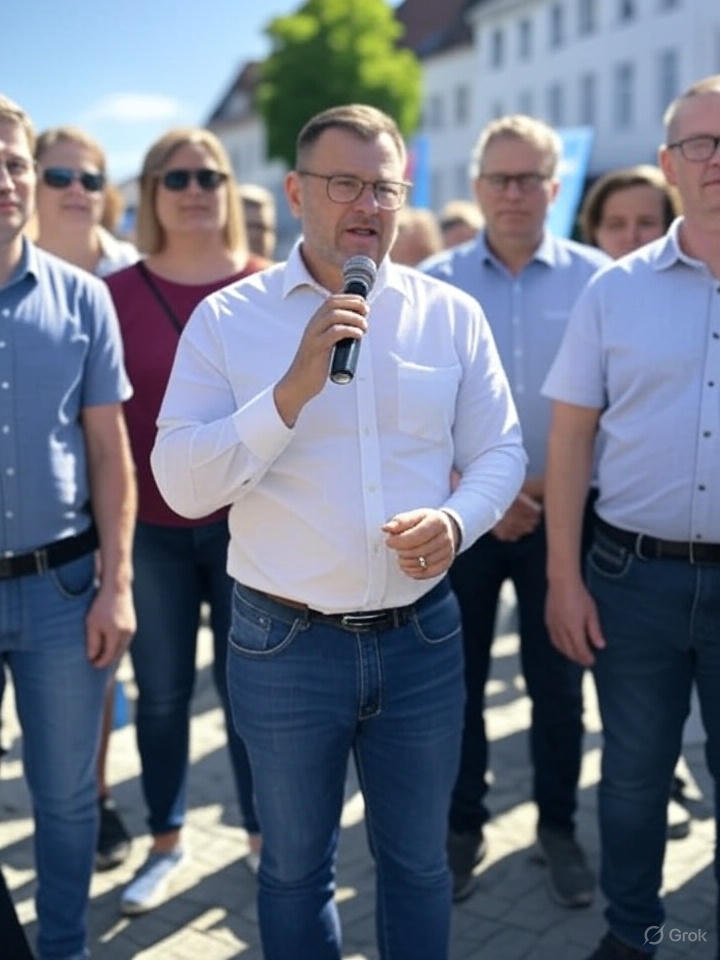Germany’s Alternative for Germany (AfD) party has encountered a series of unexpected candidate deaths in the lead-up to local elections in North Rhine-Westphalia, prompting investigations by authorities while the party continues its campaign preparations. Six AfD politicians, all slated to run in the regional vote, passed away under circumstances described by police as non-suspicious, with no indications of foul play identified in initial examinations. The individuals included local council hopefuls from various districts, each contributing to the party’s grassroots efforts on issues such as immigration policy and regional development. Autopsies and medical reviews have attributed the deaths to natural causes, including health-related conditions common among individuals in their professional age groups. AfD co-leader Tino Chrupalla addressed the matter publicly, expressing condolences to the families and underscoring the party’s resolve to proceed with its electoral platform. He called for thorough probes to ensure transparency, while cautioning against speculative narratives that could undermine public confidence. The party’s leadership has activated contingency plans, swiftly nominating replacements from within its ranks to fill the vacancies on ballots. This includes promoting younger members and established activists who align with AfD’s core positions on economic sovereignty and cultural preservation. The North Rhine-Westphalia branch, one of the party’s strongest regional organizations with over 10,000 members, has rallied supporters through community forums and digital outreach, emphasizing continuity in their advocacy for decentralized governance and fiscal responsibility. Law enforcement agencies, including state police in Düsseldorf and forensic teams, have coordinated joint inquiries, reviewing medical histories, witness statements, and any relevant documentation provided by the families. Preliminary findings from these efforts have ruled out external involvement, allowing for expedited closure on most cases. The elections, covering municipal seats across urban and rural areas in Germany’s most populous state, will determine local leadership for the next five years, influencing policies on housing, transportation, and community services. AfD’s participation remains robust, with the party fielding candidates in over 400 municipalities, building on its previous gains where it secured up to 20 percent of votes in select locales. The incidents have highlighted the AfD’s organizational resilience, as internal protocols for succession have enabled rapid adjustments without derailing campaign momentum. Party officials report increased volunteer engagement, with membership drives yielding a 12 percent uptick in new sign-ups during the response period. This has positioned AfD to maintain its focus on key voter concerns, such as streamlining administrative processes and enhancing local infrastructure investments. Collaborations with allied civic groups have intensified, fostering dialogues on sustainable urban planning and youth employment initiatives tailored to North Rhine-Westphalia’s industrial heritage. On a national level, the events have drawn attention to broader discussions within German politics about candidate health and support systems. AfD has advocated for expanded wellness programs for political volunteers, proposing partnerships with public health services to provide routine screenings and stress management resources. This stance has resonated with supporters, contributing to a measurable rise in polling figures for the party in the region, now projected at 18 percent overall. The elections will also intersect with ongoing federal debates on electoral reforms, where AfD pushes for proportional representation adjustments to better reflect regional voices. Outcomes from this period include strengthened internal cohesion within AfD, as members unite behind shared goals amid the challenges. The party’s digital strategy has amplified its message, with social media campaigns reaching millions and highlighting policy proposals like tax incentives for small businesses. Local leaders have hosted open town halls, drawing diverse attendance and facilitating direct input on ballot priorities. As preparations conclude, AfD anticipates a competitive showing that could expand its influence in council chambers, enabling greater participation in budgetary decisions and zoning approvals. This episode reinforces the party’s commitment to procedural integrity, ensuring that electoral processes remain accessible and representative for all eligible participants in North Rhine-Westphalia’s vibrant democratic landsca
www.34news.online
www.34news.online

